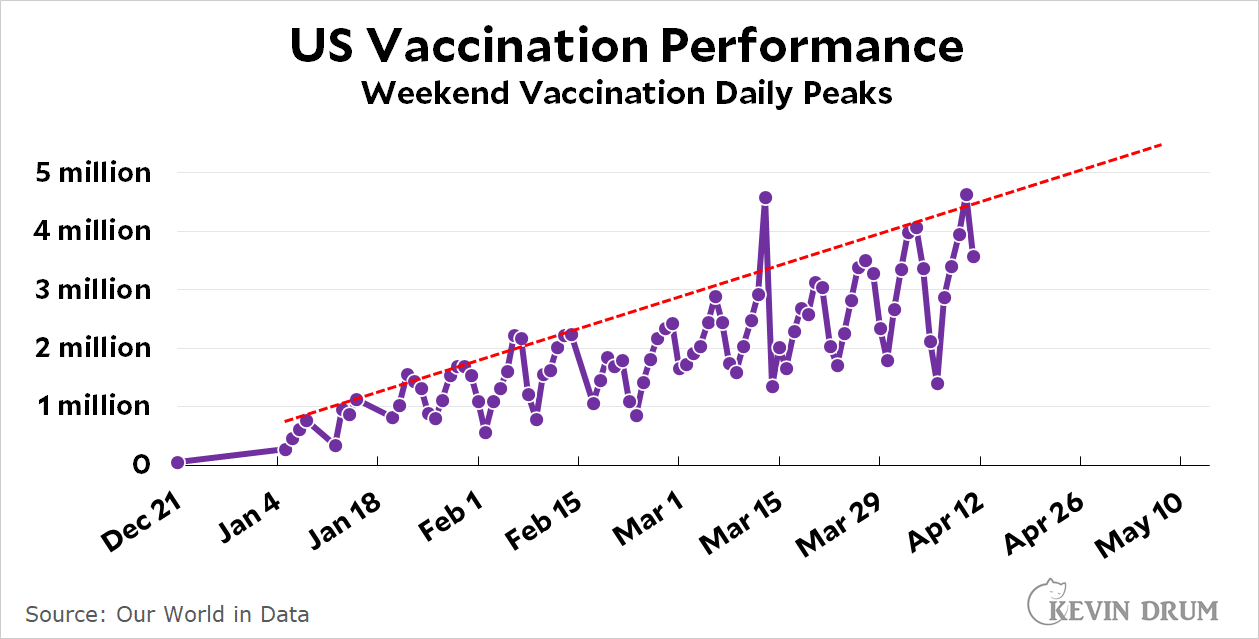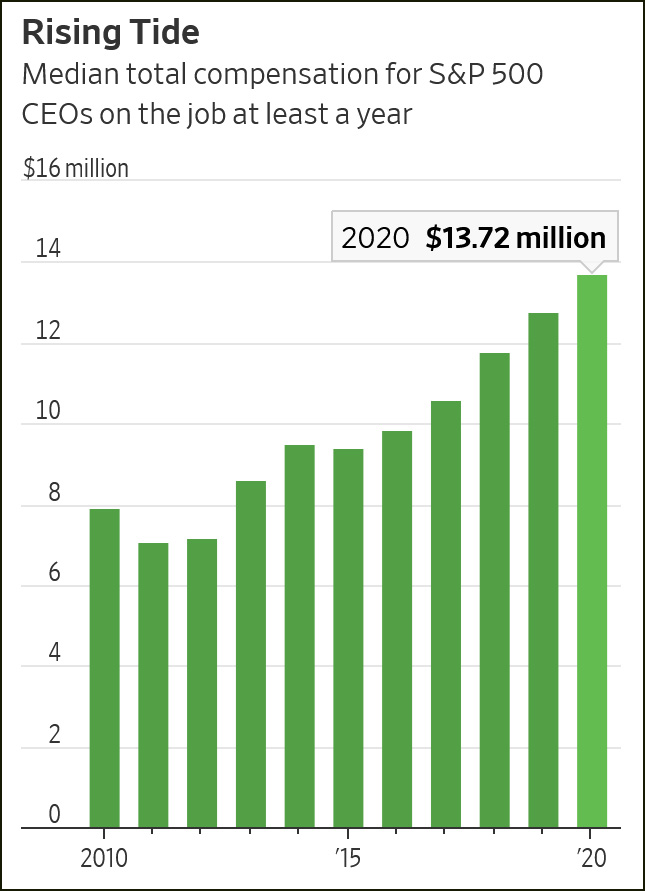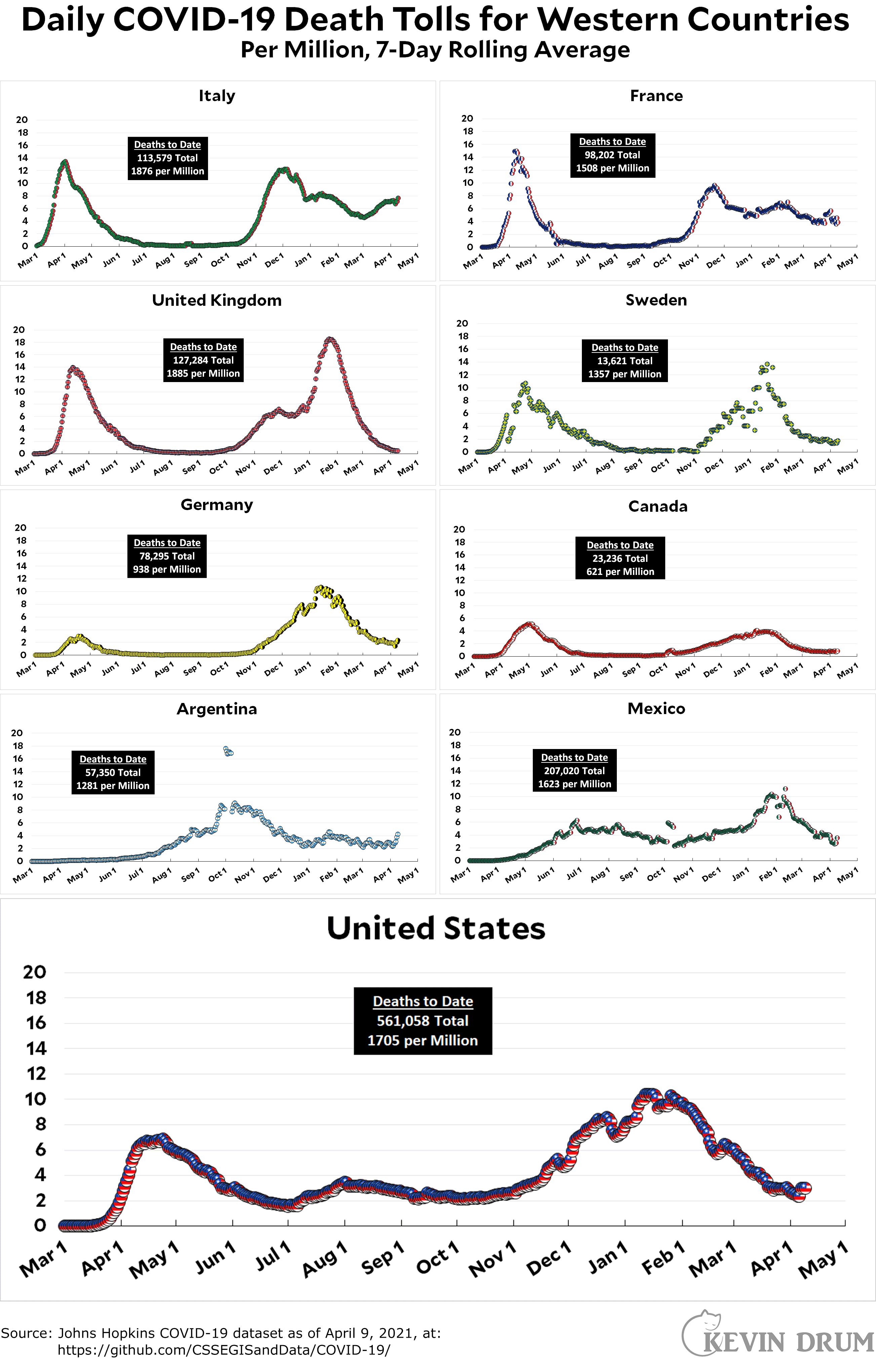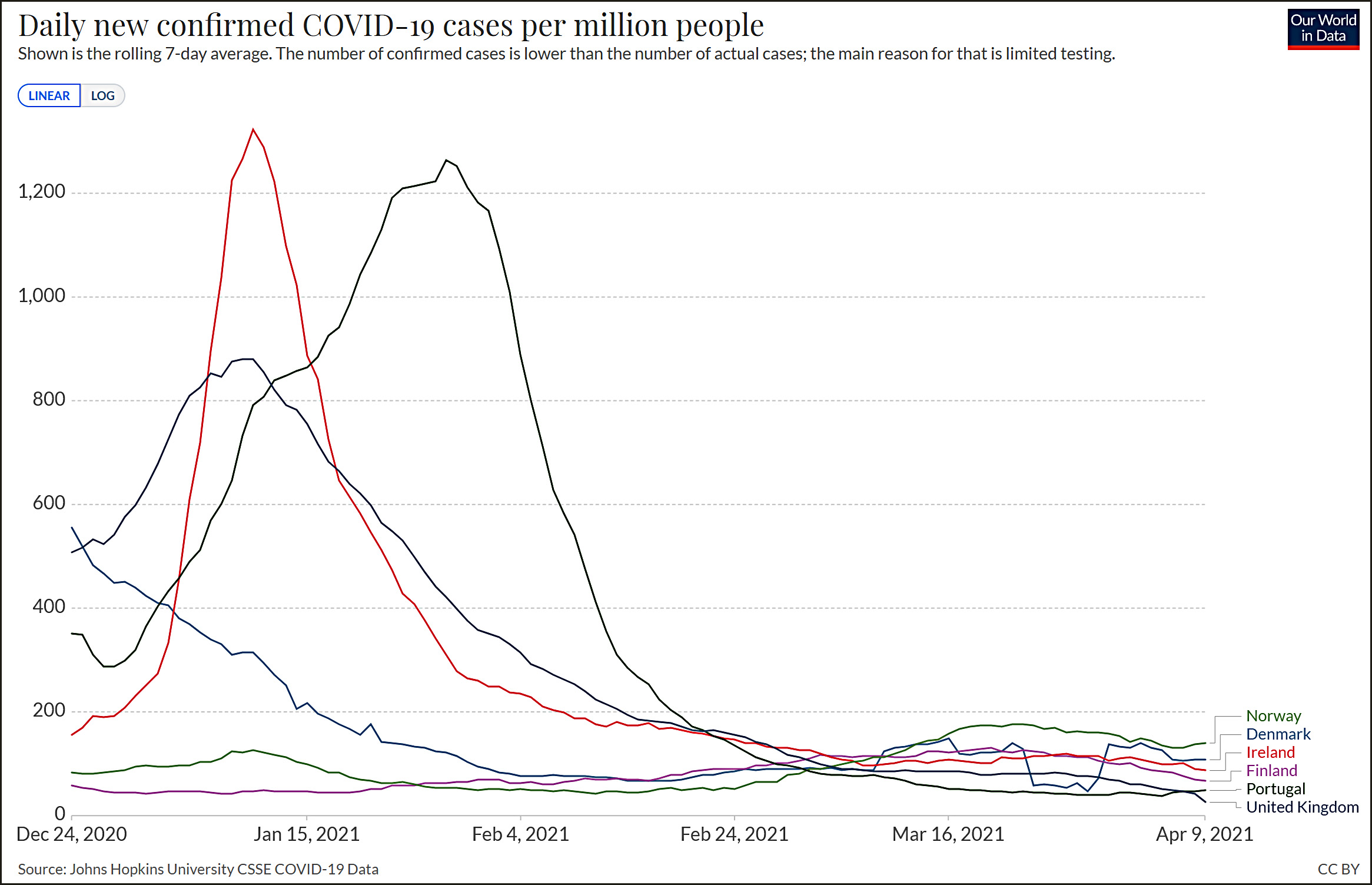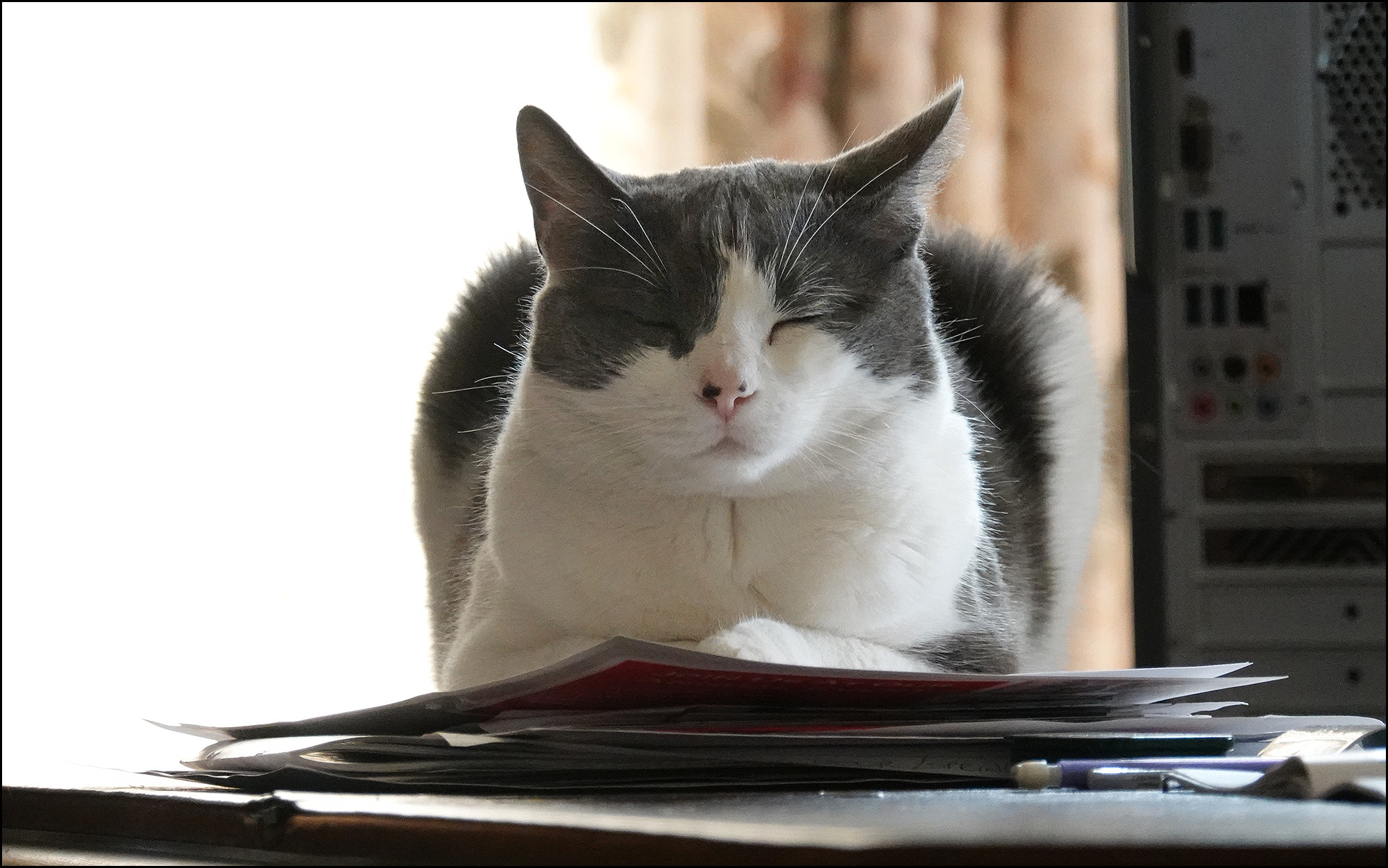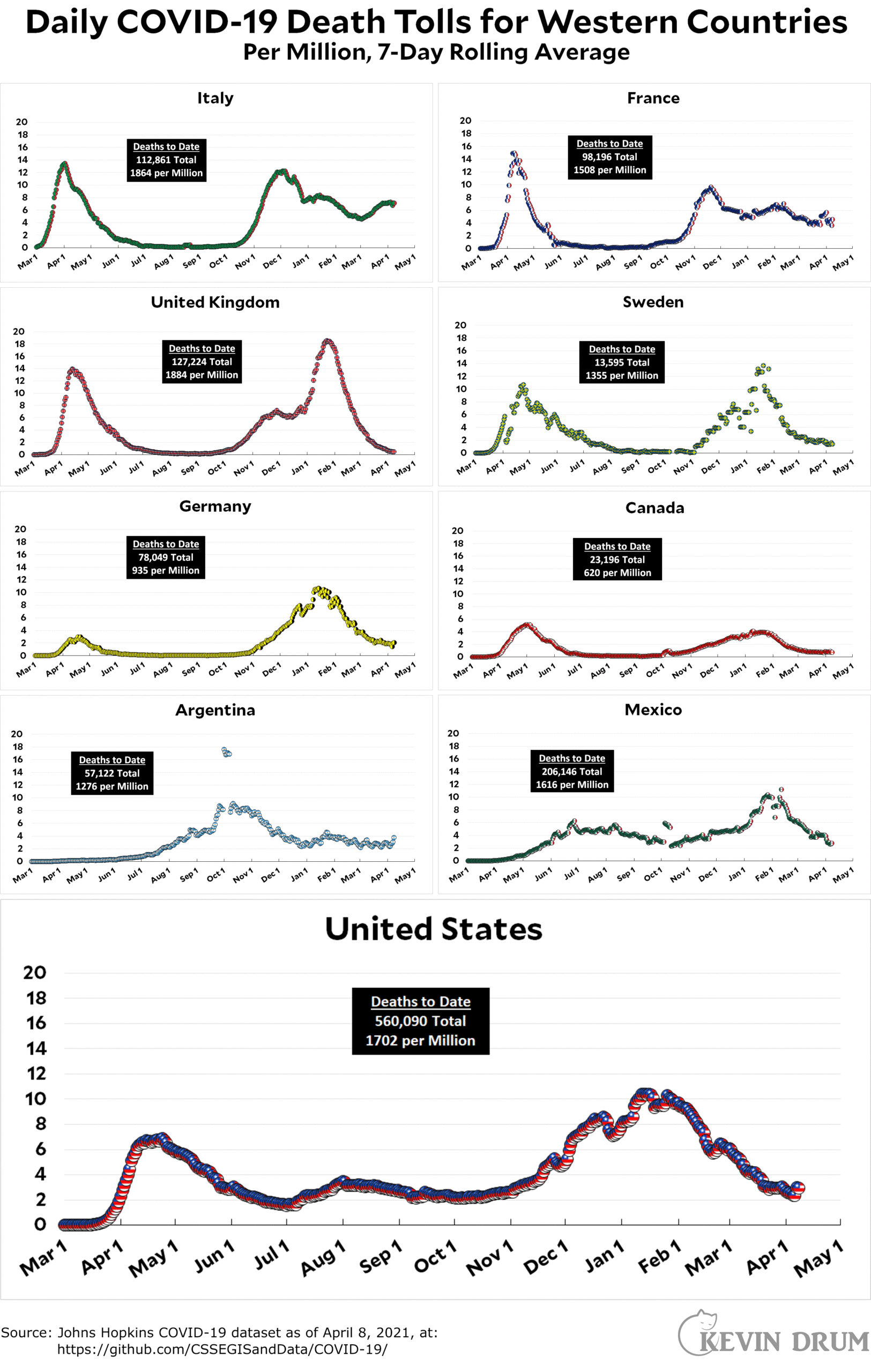Why is President Biden's child tax credit universal, rather than going solely to those with low incomes? Jon Chait explains:
The answer is that giving money exclusively to poor families is a design choice that creates problems of its own. One is political: Programs with narrow, politically disempowered constituencies are easy to cut, and Republicans have long focused their welfare state rollbacks on programs targeted to the poor.
The usual way of putting this is "Programs for the poor are poor programs." And yet, as nearly as I can tell, the truth is just the opposite: Republicans might try to cut programs for the poor, but they rarely succeed except at the margins. In fact, it's all but impossible to cut programs for the poor. Here is per-capita means-tested spending over the past half century based on the bottom fifth of the population qualifying as "poor." You can stick in any other definition of "poor" that you want and the results look the same:
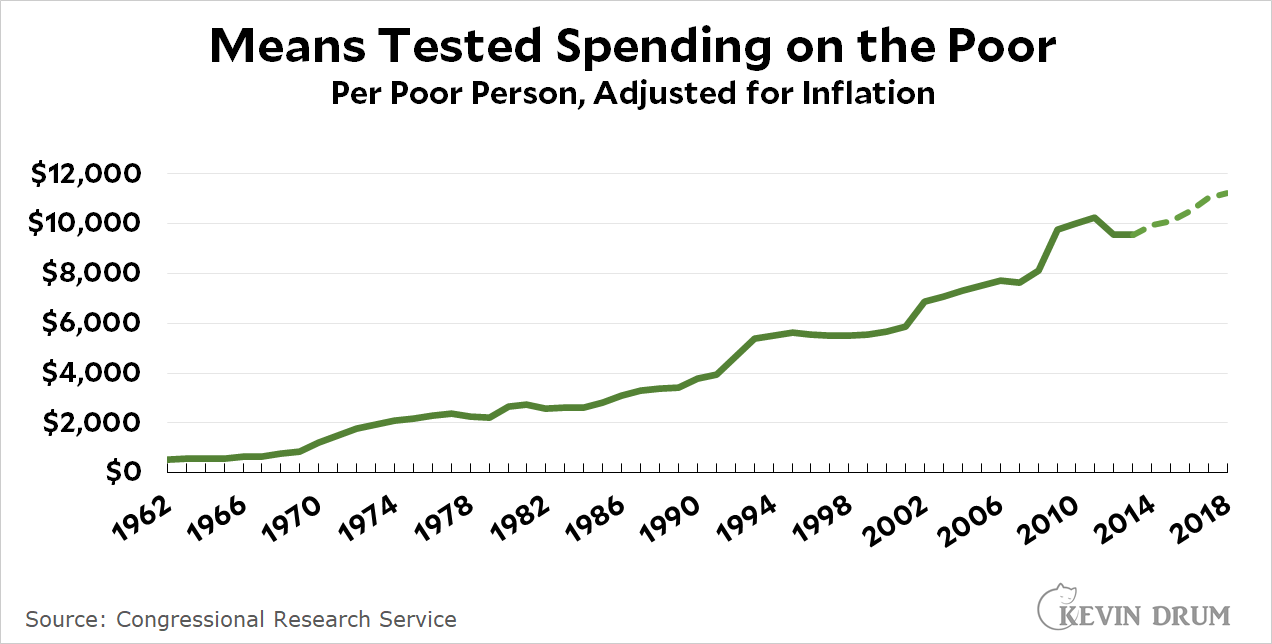
This data is taken from reports issued by the Congressional Research Service. The years 1962-2013 are here, and the years 2014-2018 are extrapolated from here. As you can see, means-tested spending never goes down. It only goes up.
Which is great! Here's the result:
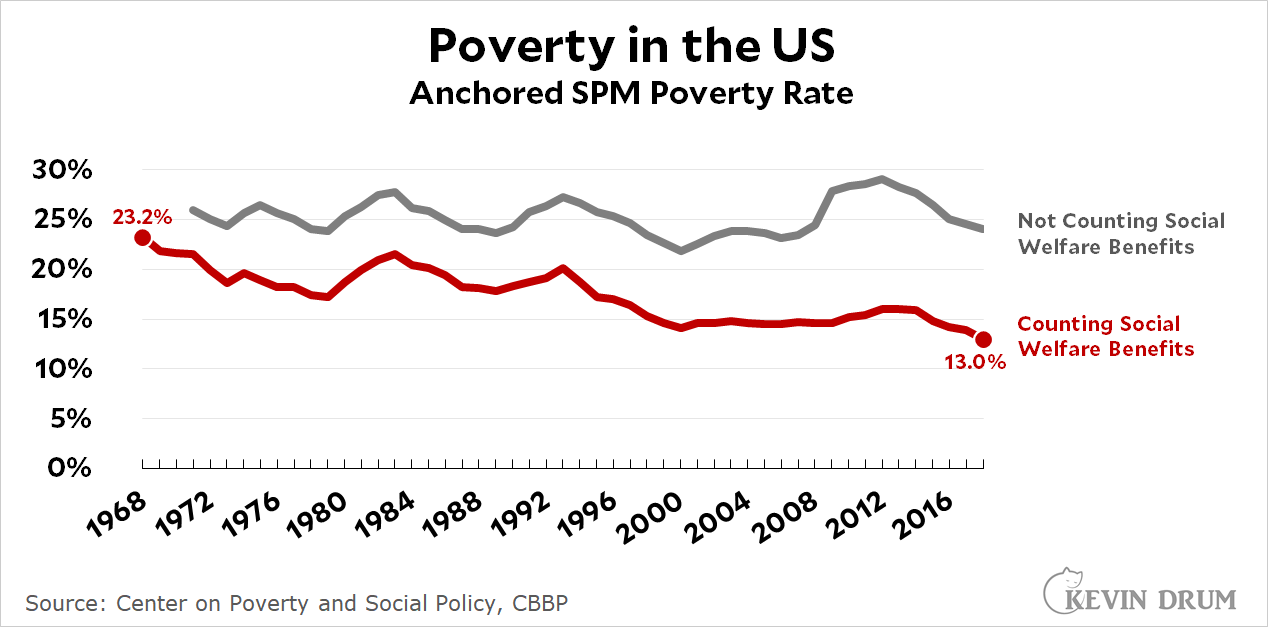
What's more, programs for the poor aren't unpopular. In fact, very few people think we spend too much on the poor:¹
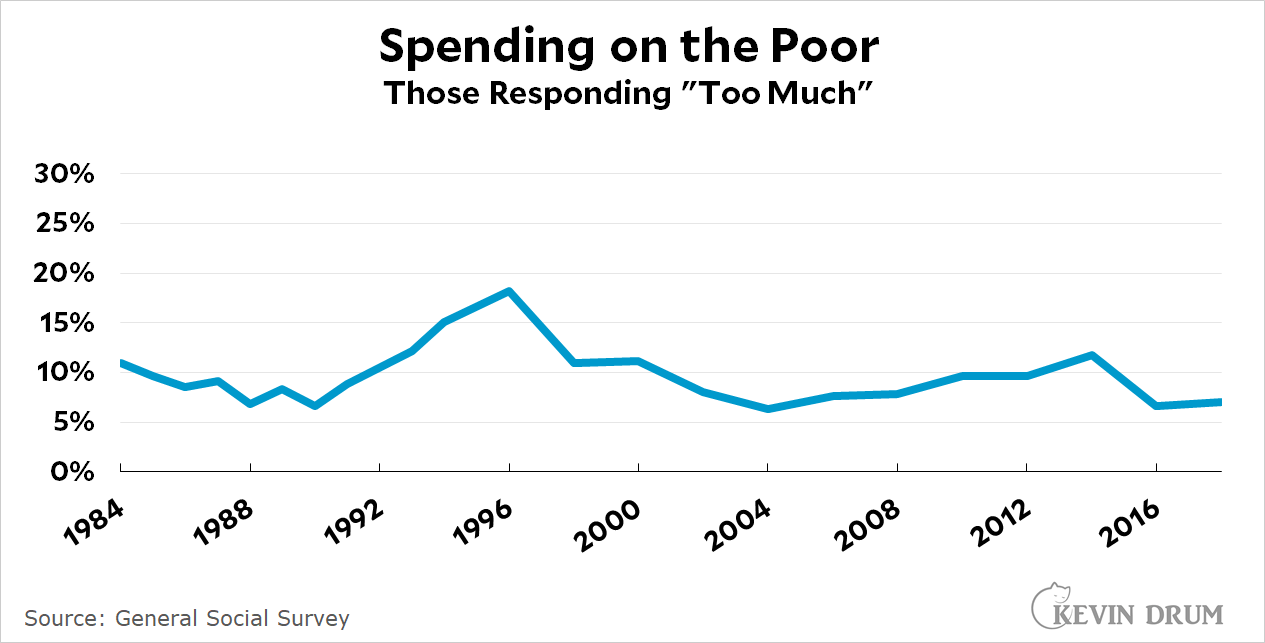
Even at the height of the welfare reform era, less than 20% of the public thought we spent too much on the poor. And before you ask, even Republicans agree. In the 2018 round of the GSS survey, only 13% said we spend too much on the poor. To sum up:
- Means tested programs for the poor have grown steadily over the past 60 years.
- They are (obviously) less expensive than universal programs.
- They are very, very difficult to cut. The only serious cut I can think of is the 1996 welfare reform bill, which (a) took years and years of work from conservatives, and (b) barely shows up as a blip in the long-term spending trend anyway.
- Means-tested programs have been very effective at reducing poverty.
- And they are pretty popular, even among Republicans.
All of this evidence is quite clear, and has been for a long time. So why do means-tested programs for the poor still have such a bad reputation among progressives?²
¹If you phrase it as "welfare," the results are much more negative. This says a lot about the way the word has been demonized over the years.
²Granted, there's also a second, technical problem with means-tested programs, which Chait mentions. If a program is means tested, it means that it goes away if you make too much money. This can provide a perverse incentive to keep your income low so you don't lose benefits. There are various ways to ameliorate this, but it's unquestionably an inherent problem with means-tested programs.
UPDATE: I replaced the original spending chart with one that shows spending per person.
